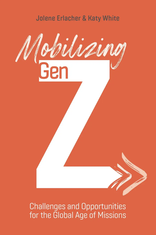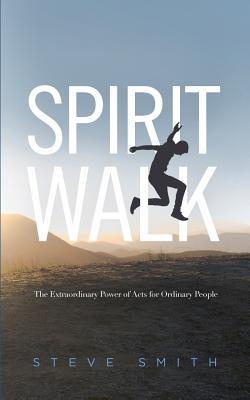|
As I interact with people at E2E training events and in churches I've begun to realize that there are a number of identifiable reasons that Christians are not sharing the good news of Jesus with friends, family members and strangers. We aren't Christians. Sometimes as we are talking with someone who calls themselves a Christian it becomes clear that they aren't. They are what Dean Inserra calls a "cultural Christian" and while they identify as a Christian in word, it is more so as a default. They aren't an atheist or a Muslim and their family went to church occasionally as a child so they must be a Christian. But they aren't trusting Jesus for anything really, let alone salvation. And of course they are not sharing the gospel with anyone. So while they may be offended by the notion, we need to share the gospel with them. [check out Dean's new book, "The Unsaved Christian."] We don't know that sharing the gospel is required. There are others we will run into who genuinely trust in Jesus. They have repented and believed. But somewhere along the lines, they were not discipled into the word or into the knowledge of their role in this world as ambassadors (2 Corinthians 5:20), witnesses (Acts 1:8) or disciple making disciples (Matthew 28:18-20). This is a disciple making issue and we can quickly help them discover the joy of their job to share the love and truth of Jesus with others by taking them into the word of God. We feel unqualified. Another challenge we often run into is a sense they are not qualified to share the gospel with others. It's as if they've somehow been trained to believe that sharing the gospel is something that experts do - and they aren't an expert. This too is a disciple making issue and can be overcome by having this friend turn with us to Luke 8:26-39, the story of Jesus' encounter with the Geresenes demoniac. When finished re-read verses 38-39. This man begs to go with Jesus but Jesus "sent him away saying, "Return to your home, and declare how much God has done for you." And he went away, proclaiming throughout the whole city how much Jesus had done for him." Does your Christian friend know more than the man in this story? Almost certainly! This man knows exactly one thing - the before and after story of his encounter with Jesus! No Bible training. No discipleship programs. no Sunday school classes. Not even a Bible in his hands. After encouraging Christian friends with this story I have them write "I AM QUALIFIED" in the margin of their Bible next to this story as a reminder. We are afraid. Another common factor that we all run into is fear. I know of no one who doesn't at times face fear and respond by running away. We know we should have that conversation with our family member or co-worker. We feel the nudge to say something to the stranger behind the counter. But fear creeps in and paralyzes us and we move on without saying anything. "Next time" we think, but next time the same thing happens. How do we help our Christian friends overcome fear?
These are just a few ideas of how we can help our friends overcome their fear of sharing the gospel. We don't know how. Too often, fear comes from feeling unprepared. Many just don't know what to say or how to transition to a gospel conversation. It's not really their fault. If someone asked me to go out and change the alternator on my car, I wouldn't even know where to begin. I think it's under the hood? We have to take the time to equip our friends with simple tools so that they understand who to share with and know what to actually share. At E2E events we spend one whole morning equipping everyone to identify their relational networks (who to share with) and training them with lots of practice and repetitions to share their 15 second testimony and to share a simple gospel presentation called 3 Circles (what to share). These are not the end all and be all of sharing the gospel but they will equip Christians to begin to share the gospel boldly and abundantly. We are just disobeying Jesus. When it comes to the end of the day, our heart at E2E is to ensure that the only reason that Christians are not sharing the gospel is that they are just plain disobeying Jesus. We want to make sure that no one we connect with has any excuse. We want to see everyone everywhere equipped, trained and discipled into a life of sharing the good news of our Lord with anyone, anywhere, any time! And if you'd like to hear some of these ideas through a little different - and much more powerful lens, find an hour to listen to Dawson Trotman's sermon, Born to Reproduce. Dawson Trotman - Born to Reproduce [Listen Now]
0 Comments
I've found the story of Jonah to be a helpful starting place for the North American church when it comes to exploring our attitudes and actions toward people from groups other than our own - Muslims, Buddhists, Hindus, Atheists or the LGBTQ community. Jonah is at best, the reluctant prophet. His reticence to go along with the mission of God to save the Ninevites becomes almost a distraction to the main message of Jonah's book: the heart of God to save. But God does save the Ninevites who repent and believe and turn from their wicked ways. Meanwhile, Jonah heads out to a hill beside the city in hopes that fire will still fall. It's there that the curious event with a shade plant growing and then dying occurs. Jonah had gone out and sat down at a place east of the city. There he made himself a shelter, sat in its shade and waited to see what would happen to the city. Then the Lord God provided a leafy plant and made it grow up over Jonah to give shade for his head to ease his discomfort, and Jonah was very happy about the plant. But at dawn the next day God provided a worm, which chewed the plant so that it withered. When the sun rose, God provided a scorching east wind, and the sun blazed on Jonah’s head so that he grew faint. He wanted to die, and said, “It would be better for me to die than to live.” Jonah was concerned about the plant and the comfort that it afforded him. The heart of God however was to save. The heart of Jonah was somewhere else, focused on something he thought he was loosing. Something he thought was important but that God didn't think was important. At least not as important as saving the Ninevites. This particular point in the story has had me thinking lately about the plants in my own life that I elevate above the mission and purposes of God -- the old wine skins that Jesus is inviting me to let go of in favor of new wine skins. Jonah is not a Bible character that we should emulate. His is not an example to follow. God seems to place the story of Jonah in the scriptures first and foremost to demonstrate His heart for the nations - even nations bent on evil. But there is an important opportunity in the story of Jonah to reflect on our own hearts. Discovery Take fifteen minutes to read or listen to the story of Jonah and then answer the following questions:
Feel free to interact with these questions and the E2E community in the comments below. The Gospel of Mark is an action packed biography of the life of Jesus. The very first chapter begins with John the Baptist preparing the way, Jesus getting baptised and then heading into the wilderness for forty days of fasting and temptation from Satan. By verse fifteen Mark jumps straight into ministry as Jesus comes into the region of Galilee announcing, “The time is fulfilled, and the kingdom of God is at hand; repent and believe in the gospel.” Jesus calls the twelve to follow him at the sea and then heads into the town of Capernaum where he preaches in the synagogue, heals a man with an unclean spirit and later heals Peter’s mother-in-law. Verse 28 tells us that “immediately his fame spread everywhere throughout the surrounding region of Galilee.” Before the day is out, people are lined up at Peter’s door wanting to see Jesus, to be healed and to be set free from demons. I imagine this went on late into the night. Not a bad first day of ministry. Exhausting let’s assume, but good. If we were to stop the story there and pretend we didn’t know what Jesus did next, how would we finish the story? I think I would probably sleep in the next morning. It was a long, hard day of ministry and I’d need to be good and rested up. Once I did get up, I’d probably start looking for a big hall to rent knowing that the crowds are back. I’d maybe print up some flyers to let everyone know when and where we’d be meeting again and I’d encourage everyone to invite all of their friends. But of course this isn’t the path of Jesus. He rises very early in the morning to head out and spend some time in prayer with the Father (verse 35). When his disciples find him, all excited about the crowds that are already forming (verse 37), Jesus’ response must have seemed just a bit counter-intuitive. “Let us go on to the next towns, that I may preach there also, for that is why I came out (verse 38).” And that is exactly what Jesus did. “He went throughout all Galilee, preaching in their synagogues and casting out demons (verse 39).” From the very beginning of his ministry, Jesus defaults toward going. We see this over and over again in the ministry and teachings of Jesus. Here are a few examples from the book of Mark:
Jesus prepares the disciples to go and expects them to go (Acts 1:8). It is his prayer that as he has been sent into the world, he will send his disciples into the world as well (John 17:18). And the commission given to his disciples in Matthew 28, “to go and make disciples of all nations, baptising them in the name of the Father and the Son and the Holy Spirit and teaching them to obey everything he had commanded”, is the strategy of Jesus. Making disciples who make disciples is His plan A. Jesus promised he would build his church. We are to go and make disciples. We are to be church. To do that, we must gather. It is the example that the first church gives us (Acts 2:42-47; Acts 4:32-37) and is clearly taught in scripture (Matthew 18:20; Hebrews 10:25; Colossians 3:16; Ephesians 4:11-13). But the purpose of church is not to gather. The purpose is to gather so that we can scatter, so that we can go and make disciples, proclaiming the good news of Jesus Christ and make him famous all over the earth. Jesus’ invitation to us is to follow him. And Jesus is on the move. So let’s go. I've been investing some time this summer working my way through the #NOPLACELEFT Strategy Coordinator Training that Steve Smith lead in 2016. Trainers include Steve Smith, Stan Parks, Chuck and Deb Wood, Fred Campbell, and Ray and Sara Vaughn. It was held in Houston over seven very full days. There are four sections of teaching with forty three sessions. This is a training that I wish I could attend in person, but for now I am blessed to learn from movement practitioners and to watch them model how to effectively train groups of people through videos. I've learned so much and if you are asking the question, "What is it going to take to reach my entire city, region or people group?" then this training will be super beneficial. You can begin going through the training videos for FREE HERE. You can find future trainings that are similar HERE. And you can watch Steve Smith's introductory session to the training below. |
The E2E Community
Categories
All
Good Books
Archives
April 2024
|
Proudly powered by Weebly









